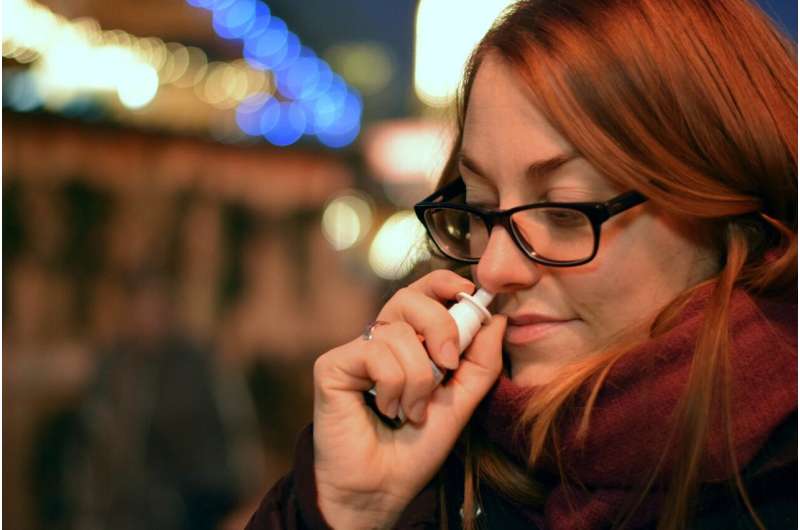Common Nasal Spray Shows Promise in Reducing COVID-19 Infection Risk

A clinical study shows that a common antihistamine nasal spray with azelastine can cut COVID-19 infection risk by nearly two-thirds, offering a promising preventive tool against the virus.
A recent clinical study conducted by researchers at Saarland University has revealed that a widely used antihistamine nasal spray, containing azelastine, may significantly lower the risk of contracting COVID-19. The placebo-controlled trial involved 450 healthy volunteers over a 56-day period and demonstrated encouraging results in preventing SARS-CoV-2 infections.
Led by Professor Robert Bals, the study divided participants into two groups: one used the azelastine nasal spray three times daily, while the control group received a placebo spray at the same frequency. Findings showed that only 2.2% of those using the azelastine spray tested positive for COVID-19, compared to 6.7% in the placebo group, representing a reduction of about two-thirds.
In addition to decreasing COVID-19 infections, the azelastine group experienced fewer cases of respiratory illnesses overall. Interestingly, the study also noted a lower incidence of rhinovirus infections, which are a common cause of respiratory cold symptoms, suggesting potential broader antiviral effects.
Azelastine nasal spray has been a staple in allergy treatments for decades and was previously suggested to have antiviral properties based on laboratory studies. This clinical trial marks the first evidence of its protective effects in real-world conditions, according to Professor Bals.
The results hint at practical applications, especially for vulnerable populations or during peak infection periods. The spray could serve as an accessible prophylactic tool alongside existing protective measures like vaccination and mask-wearing. However, Professor Bals emphasized the need for larger, multicenter studies to further explore its preventive potential against COVID-19 and other respiratory viruses.
Funding for the research was provided by Saarbrücken-based pharmaceutical company URSAPHARM Arzneimittel GmbH, which also manufactured the nasal spray used in the trial.
This development offers a promising step toward additional preventive options in managing viral respiratory infections, complementing current public health strategies.
source: https://medicalxpress.com/news/2025-09-widely-nasal-spray-coronavirus-infection.html
Stay Updated with Mia's Feed
Get the latest health & wellness insights delivered straight to your inbox.
Related Articles
Understanding Heat Acclimation: How to Stay Cool and Resilient in Extreme Temperatures
Discover how heat acclimation and simple strategies can help individuals adapt to rising temperatures, protect health, and build resilience against extreme heat conditions.
Role of DNA Repair Enzyme Polβ in Protecting the Developing Brain from Mutations
New research reveals how the DNA repair enzyme Polβ is crucial in protecting the developing brain from mutations that could lead to neurodevelopmental disorders.
Innovative Immune Cell Therapy Shows Promise in Stabilizing Advanced Head and Neck Cancer
A groundbreaking clinical trial reveals that autologous tumor-infiltrating lymphocyte therapy can help stabilize advanced head and neck cancer, offering hope for previously treatment-resistant patients.



